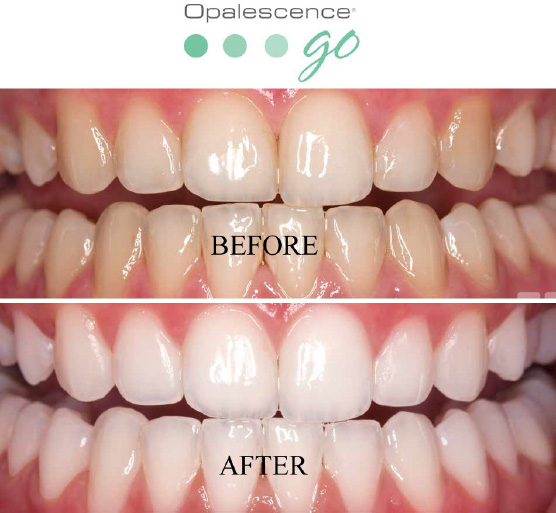Welcome to the world of pediatric dentistry, where we focus on ensuring lifelong oral health for our young patients. From infancy through adolescence, caring for children’s teeth is essential for setting the stage for healthy habits that will last a lifetime. Baby teeth play a crucial role in speech development and maintaining space for permanent teeth. By starting early with good oral hygiene practices and regular dental visits, parents can ensure their child’s smile stays healthy and bright for years to come. So don’t wait, schedule that first dental appointment by the age of one and let’s work together to create a lifetime of smiles! Have you ever wondered about the importance of pediatric dentistry in ensuring lifelong oral health for your child? You may have questions about when to start dental care for your little one and what steps you can take to establish healthy oral hygiene habits early on. In this article, we will explore the world of pediatric dentistry and provide you with valuable information to help you navigate your child’s dental health journey. Let’s dive in!
The Importance of Pediatric Dentistry
When it comes to dental care for children, pediatric dentistry plays a crucial role in promoting healthy teeth and gums from a young age. Pediatric dentists specialize in treating the dental needs of infants, children, and adolescents, focusing on preventive care, early intervention, and education. By starting dental visits early and establishing a relationship with a pediatric dentist, you can ensure that your child receives the necessary care and guidance for maintaining optimal oral health throughout their life.
Building a Strong Foundation
Just as a strong foundation is essential for building a sturdy house, proper dental care is vital for establishing a strong foundation for your child’s oral health. Pediatric dentistry emphasizes the importance of caring for baby teeth, also known as primary teeth, as they are placeholders for permanent teeth and play a crucial role in speech development. By teaching your child good oral hygiene habits and scheduling regular dental check-ups, you can help them develop healthy habits that will last a lifetime.
When to Start Dental Care for Your Child
As a parent, you may be wondering when to start dental care for your child and how to best prepare them for their first dental visit. The American Academy of Pediatric Dentistry recommends that children have their first dental visit by the age of one or within six months of their first tooth erupting. This early visit allows the dentist to assess your child’s oral health, provide guidance on proper care, and address any concerns you may have.
Preparing for the First Dental Visit
Your child’s first dental visit can be a positive experience with the right preparation. Before the appointment, take the time to talk to your child about what to expect and build excitement about their visit to the dentist. Bring along any oral health records, including medical history and insurance information, to provide the dentist with a comprehensive overview of your child’s health. By creating a positive and supportive environment, you can help ease any anxiety your child may have about visiting the dentist.

Preventive Care and Early Intervention
Preventive care is a cornerstone of pediatric dentistry, focusing on maintaining healthy teeth and gums to prevent dental problems before they occur. By practicing good oral hygiene at home, including brushing twice a day and flossing, and scheduling regular dental check-ups, you can help protect your child’s smile and detect any issues early on. Early intervention is key in addressing dental problems promptly and preventing them from escalating into more serious conditions.
Dental Cleanings and Exams
Regular dental cleanings and exams are essential for keeping your child’s teeth and gums healthy. During a dental cleaning, a hygienist will remove plaque and tartar buildup, followed by a thorough examination by the pediatric dentist. These visits allow the dentist to check for cavities, monitor tooth development, and provide guidance on proper oral hygiene practices. By scheduling routine cleanings and exams, you can help safeguard your child’s oral health and prevent potential issues from arising.
Sealants and Fluoride Treatments
Sealants and fluoride treatments are common preventive measures used in pediatric dentistry to protect teeth from decay and strengthen enamel. Sealants are thin, plastic coatings applied to the chewing surfaces of molars to prevent food particles and bacteria from settling in the grooves and causing cavities. Fluoride treatments help remineralize tooth enamel and make it more resistant to acid attacks, reducing the risk of cavities. These treatments are safe, effective, and can provide added protection for your child’s teeth.
Common Dental Issues in Children
Children may experience a variety of dental issues, ranging from cavities and gum disease to orthodontic problems and dental emergencies. Understanding common dental problems in children can help you identify warning signs and seek timely treatment to address these issues. Pediatric dentistry encompasses a wide range of dental services designed to meet the unique needs of young patients and ensure their oral health and overall well-being.
Cavities (Tooth Decay)
Cavities, also known as tooth decay, are one of the most prevalent dental issues in children, affecting primary and permanent teeth alike. Cavities occur when bacteria feed on sugars in the mouth, producing acid that erodes tooth enamel and causes decay. Symptoms of cavities may include tooth sensitivity, pain, and visible holes or discoloration on the teeth. By practicing good oral hygiene, limiting sugary snacks, and attending regular dental visits, you can help prevent cavities and maintain your child’s oral health.
Gum Disease (Gingivitis)
Gum disease, or gingivitis, is inflammation of the gums caused by plaque buildup and poor oral hygiene. Symptoms of gingivitis may include red, swollen gums, bleeding when brushing or flossing, and bad breath. If left untreated, gingivitis can progress to more severe forms of gum disease, leading to tooth loss and other complications. By promoting good oral hygiene habits, including regular brushing and flossing, you can help prevent gum disease and protect your child’s gum health.
Orthodontic Issues (Malocclusions)
Orthodontic issues, such as malocclusions or misalignments of the teeth and jaws, can impact your child’s oral health and overall well-being. Common orthodontic problems in children include crowding, gaps between teeth, overbites, underbites, and crossbites. Early intervention by a pediatric dentist or orthodontist can help address these issues and guide proper tooth alignment and jaw development. Orthodontic treatments, such as braces or clear aligners, can correct malocclusions and improve your child’s smile and bite.
Dental Emergencies
Dental emergencies, such as toothaches, broken teeth, and injuries to the mouth, can occur unexpectedly and require immediate attention. Knowing how to handle dental emergencies and when to seek help from a pediatric dentist is essential for protecting your child’s oral health. In case of a dental emergency, stay calm, clean the affected area, and contact your child’s dentist for guidance on next steps. Prompt treatment can help alleviate pain, prevent complications, and preserve your child’s smile.

Healthy Habits for Lifelong Oral Health
Establishing healthy habits early on is key to ensuring lifelong oral health for your child. By incorporating simple practices into your daily routine and encouraging your child to take an active role in caring for their teeth and gums, you can set the stage for a healthy smile that will last a lifetime. From proper brushing and flossing techniques to making nutritious food choices and attending regular dental check-ups, there are many ways you can support your child’s oral health journey.
Proper Brushing and Flossing
Teaching your child proper brushing and flossing techniques is essential for maintaining healthy teeth and gums. Encourage your child to brush twice a day for two minutes each time, using a soft-bristled toothbrush and fluoride toothpaste. Show them how to clean all surfaces of their teeth, including front, back, and chewing surfaces, and remind them to floss once a day to remove plaque and food particles between teeth. By instilling good oral hygiene practices early on, you can help your child develop a strong foundation for oral health.
Healthy Eating Habits
Nutrition plays a significant role in oral health, affecting the development of teeth and gums, as well as the risk of cavities and gum disease. Encourage your child to eat a balanced diet rich in fruits, vegetables, whole grains, lean proteins, and dairy products. Limit sugary snacks and drinks, such as candies, sodas, and juices, which can contribute to tooth decay and other dental problems. By promoting healthy eating habits and providing nutritious meals and snacks, you can support your child’s overall health and well-being.
Regular Dental Check-Ups
Scheduling regular dental check-ups is vital for monitoring your child’s oral health and addressing any concerns early on. During these visits, the pediatric dentist will perform a thorough examination of your child’s teeth, gums, and overall oral health, and provide guidance on proper care and preventive measures. By attending routine check-ups every six months or as recommended by the dentist, you can stay informed about your child’s oral health status and take proactive steps to maintain their healthy smile.
Choosing the Right Pediatric Dentist
Selecting the right pediatric dentist for your child is an important decision that can impact their dental experience and overall well-being. When choosing a pediatric dentist, consider factors such as their qualifications, experience, communication style, and approach to pediatric dentistry. Look for a dentist who is friendly, patient, and understanding of children’s unique needs, and who creates a welcoming and supportive environment for young patients. By partnering with a skilled and compassionate pediatric dentist, you can ensure that your child receives high-quality care and enjoys positive dental visits.
What to Look for in a Pediatric Dentist
When searching for a pediatric dentist, consider the following factors to help you make an informed decision:
- Qualifications: Look for a dentist who is board-certified in pediatric dentistry and has completed specialized training in treating children’s dental needs.
- Experience: Choose a dentist who has experience working with children of all ages and is skilled in providing gentle and effective care.
- Communication: Seek a dentist who communicates clearly and respectfully with both you and your child, explaining procedures in a way that is easy to understand.
- Child-Friendly Environment: Select a dental office that is child-friendly, with colorful decor, toys, and amenities that help create a positive and comfortable experience.
- Patient-Centered Care: Opt for a dentist who prioritizes patient-centered care, listens to your concerns, and involves you in decision-making about your child’s treatment.
Building a Relationship with Your Child’s Dentist
Building a strong relationship with your child’s dentist is essential for fostering trust and establishing open communication about their dental care. By attending dental appointments together, asking questions, and sharing any concerns you may have, you can work collaboratively with the dentist to address your child’s oral health needs. Encourage your child to express their thoughts and feelings about visiting the dentist, and celebrate their accomplishments and bravery during each visit. By forging a positive and supportive relationship with the dentist, you can help your child feel more comfortable and confident in receiving dental care.
Conclusion
In conclusion, pediatric dentistry plays a crucial role in ensuring lifelong oral health for children, from infancy through adolescence. By starting dental care early, practicing good oral hygiene habits, and seeking preventive care and early intervention, you can help your child maintain a healthy smile and prevent dental problems. From regular dental cleanings and exams to sealants, fluoride treatments, and orthodontic care, pediatric dentistry offers a wide range of services tailored to meet the unique needs of young patients. By partnering with a skilled and compassionate pediatric dentist, you can support your child’s oral health journey and empower them to enjoy a lifetime of healthy smiles. Remember, a healthy smile starts with you!


